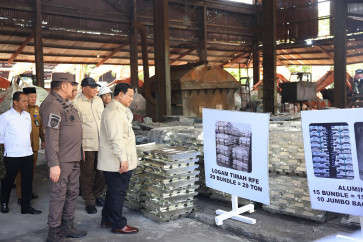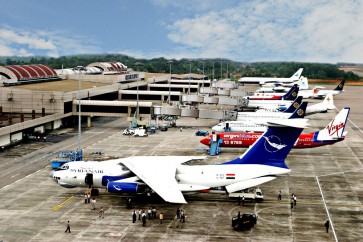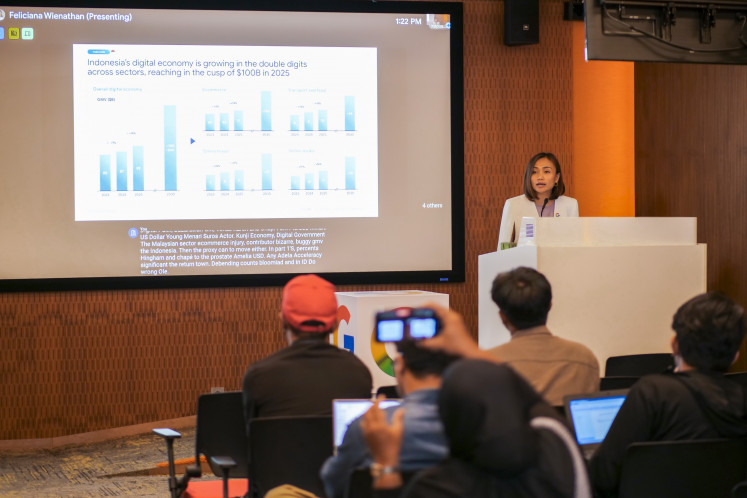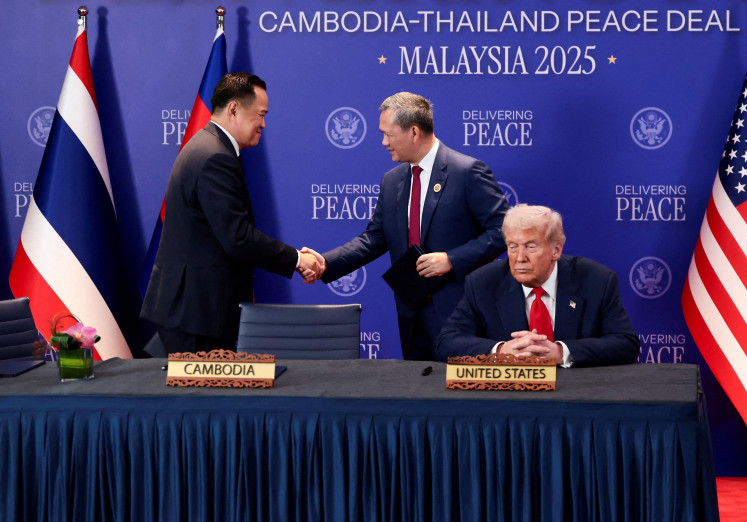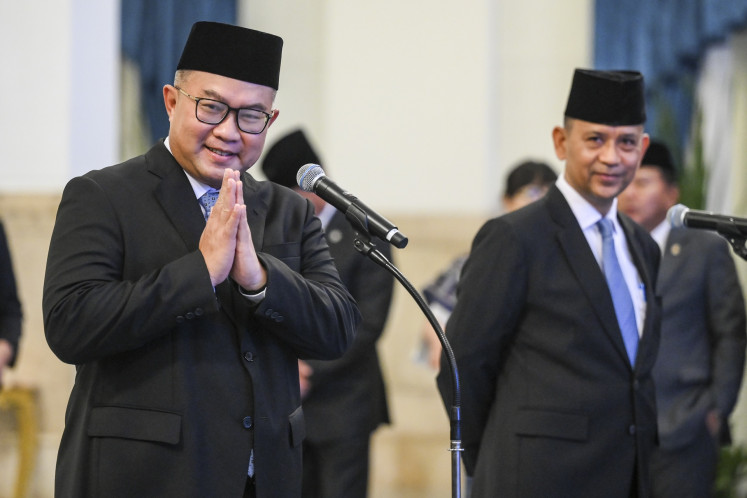Popular Reads
Top Results
Can't find what you're looking for?
View all search resultsPopular Reads
Top Results
Can't find what you're looking for?
View all search resultsReview planned for fixed-price LNG contracts: Minstry
A senior Energy and Mineral Resources Ministry official says the government plans to review several liquefied natural gas (LNG) export contracts that no longer reflect the current market conditions
Change text size
Gift Premium Articles
to Anyone
A
senior Energy and Mineral Resources Ministry official says the government plans to review several liquefied natural gas (LNG) export contracts that no longer reflect the current market conditions.
The ministry’s director general for oil and gas, Evita Herawati Legowo, said on Wednesday that the ministry was currently identifying gas sales contracts with terms that no longer reflected current market prices.
“There are several sales contracts, mostly involving small amounts of gas, whose prices are still below what we expect. Those contracts will be reviewed,” she told reporters in Jakarta.
Pressure for the government to renegotiate so-called “irregular” gas sales contracts has emerged following steep increases in global oil prices in the past several months.
The contracts feature flat pricing, such as the contract governing LNG sales from the Tangguh LNG plant in Papua to China.
No price adjustment has been made to that contact despite rising LNG prices on the world market during the past several years.
In 2002 the government signed a contract to deliver LNG to China’s Fujian province for US$2.4 per million British thermal units (mmbtu), regardless of any increases in crude oil prices.
In 2006, the price was revised to US$3.4 per mmbtu, which critics said was still too low.
The price for natural gas for July delivery on the New York Mercantile Exchange (NYMEX) was $4.55 per mmbtu on Wednesday.
An energy expert from the University of Indonesia, Kurtubi, said that the fixed-price model hindered the nation’s chance to make more money on the back of rising oil prices
Kurtubi agreed with Evita that the government should review and renegotiate the contracts as soon as possible. “That model of contract has caused great losses to the country,” he told The Jakarta Post in a telephone interview.
Kurtubi said that a fair sales contract should consider fluctuations in crude oil prices, which have been widely used to fix LNG prices. Current contracts covering LNG sales from the Bontang plant in East Kalimantan and the Arun plant in Aceh were superior, he added.
“For LNG from Tangguh, the government should follow the contract model [used for] LNG from Bontang and Arun. It’s fairer for all parties,” Kurtubi said.
The Tangguh model was also used in the contract covering gas exports from the Natuna Block B field,
operated by US-based ConocoPhillips, to Duyong in Malaysia, he said, fixing a price for gas at $2.80 per mmbtu.
Indonesia is the world’s second largest LNG producer, exporting most of its output to Japan, South Korea and Taiwan. Nearly half of the gas produced in Indonesia in 2010 was exported as the nation lacked proper storage and distribution infrastructure.
Three floating storage and re-gasification units (FSRU) in North Sumatra and Central Java are scheduled to start operation in 2012 and 2013 to address domestic gas shortfalls.



